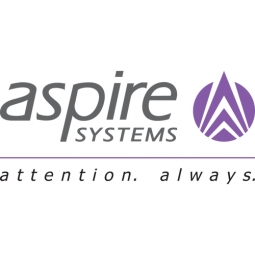Reduced 50% Operational Cost for a Leading Retail Chain in the Philippines through AWS Cloud Migration


Technology Category
- Application Infrastructure & Middleware - Database Management & Storage
- Infrastructure as a Service (IaaS) - Cloud Databases
Applicable Industries
- Consumer Goods
- Retail
Applicable Functions
- Maintenance
- Quality Assurance
Use Cases
- Retail Store Automation
- Theft Detection
Services
- Cloud Planning, Design & Implementation Services
- System Integration
The Customer
Metro Retail Stores Group
About The Customer
Metro Retail Stores Group is a leading operator of department stores and hypermarkets in the Visayas region, in the Philippines. According to retail sales value, it is the second largest supermarket operator in the region. The company is consistently expanding and its business now includes multiple store formats ranging from department stores and supermarkets to hypermarkets. In 2019, it was awarded ‘Retailer of the Year’ at the Outstanding Filipino Retailer (OFR) Awards. The client had implemented Oracle Retail Applications for business activities such as merchandising, planning, stores, and warehouse management. Financial requirements were taken care of by EBS.
The Challenge
Metro Retail Stores Group, a leading operator of department stores and hypermarkets in the Visayas region, in the Philippines, was facing several challenges with its existing Oracle Retail Applications and EBS. The applications, which were deployed on cloud services such as Oracle Linux, IBM, and AWS cloud, lacked high availability, affecting the operational performance. The system also struggled to scale and handle traffic spikes and loads. The client needed to complete the migration before the expiration of on-premises licenses. The on-premises infrastructure lacked robust security, and the management of cost and resources was ineffective. Additionally, the client needed to upgrade the OS, database, and server versions along with the migration.
The Solution
Aspire provided a comprehensive solution to Metro Retail Stores Group's challenges. The solution involved deploying Oracle Retail Applications and Oracle E-business Suite on AWS. Non-Oracle applications were also migrated to AWS cloud. The system was subjected to multiple test scenarios including SIT, UAT, and dry-run environments. An ASM file system was implemented on AWS, and a cross migration of nine databases from AIX to LINUX-XTTS was carried out. A lift and shift approach was used for the WINDOWS to LINUX shift. The operating system and EBS applications were migrated to the AWS system to manage the traffic-related spikes. Upgrades in the database, and WebLogic were ensured to maintain requirements for future upgrades. The ASM file system was implemented to optimize the storage performance on AWS.
Operational Impact
Quantitative Benefit

Case Study missing?
Start adding your own!
Register with your work email and create a new case study profile for your business.
Related Case Studies.
.png)
Case Study
Improving Vending Machine Profitability with the Internet of Things (IoT)
The vending industry is undergoing a sea change, taking advantage of new technologies to go beyond just delivering snacks to creating a new retail location. Intelligent vending machines can be found in many public locations as well as company facilities, selling different types of goods and services, including even computer accessories, gold bars, tickets, and office supplies. With increasing sophistication, they may also provide time- and location-based data pertaining to sales, inventory, and customer preferences. But at the end of the day, vending machine operators know greater profitability is driven by higher sales and lower operating costs.

Case Study
Improving Production Line Efficiency with Ethernet Micro RTU Controller
Moxa was asked to provide a connectivity solution for one of the world's leading cosmetics companies. This multinational corporation, with retail presence in 130 countries, 23 global braches, and over 66,000 employees, sought to improve the efficiency of their production process by migrating from manual monitoring to an automatic productivity monitoring system. The production line was being monitored by ABB Real-TPI, a factory information system that offers data collection and analysis to improve plant efficiency. Due to software limitations, the customer needed an OPC server and a corresponding I/O solution to collect data from additional sensor devices for the Real-TPI system. The goal is to enable the factory information system to more thoroughly collect data from every corner of the production line. This will improve its ability to measure Overall Equipment Effectiveness (OEE) and translate into increased production efficiencies. System Requirements • Instant status updates while still consuming minimal bandwidth to relieve strain on limited factory networks • Interoperable with ABB Real-TPI • Small form factor appropriate for deployment where space is scarce • Remote software management and configuration to simplify operations

Case Study
How Sirqul’s IoT Platform is Crafting Carrefour’s New In-Store Experiences
Carrefour Taiwan’s goal is to be completely digital by end of 2018. Out-dated manual methods for analysis and assumptions limited Carrefour’s ability to change the customer experience and were void of real-time decision-making capabilities. Rather than relying solely on sales data, assumptions, and disparate systems, Carrefour Taiwan’s CEO led an initiative to find a connected IoT solution that could give the team the ability to make real-time changes and more informed decisions. Prior to implementing, Carrefour struggled to address their conversion rates and did not have the proper insights into the customer decision-making process nor how to make an immediate impact without losing customer confidence.

Case Study
Digital Retail Security Solutions
Sennco wanted to help its retail customers increase sales and profits by developing an innovative alarm system as opposed to conventional connected alarms that are permanently tethered to display products. These traditional security systems were cumbersome and intrusive to the customer shopping experience. Additionally, they provided no useful data or analytics.




